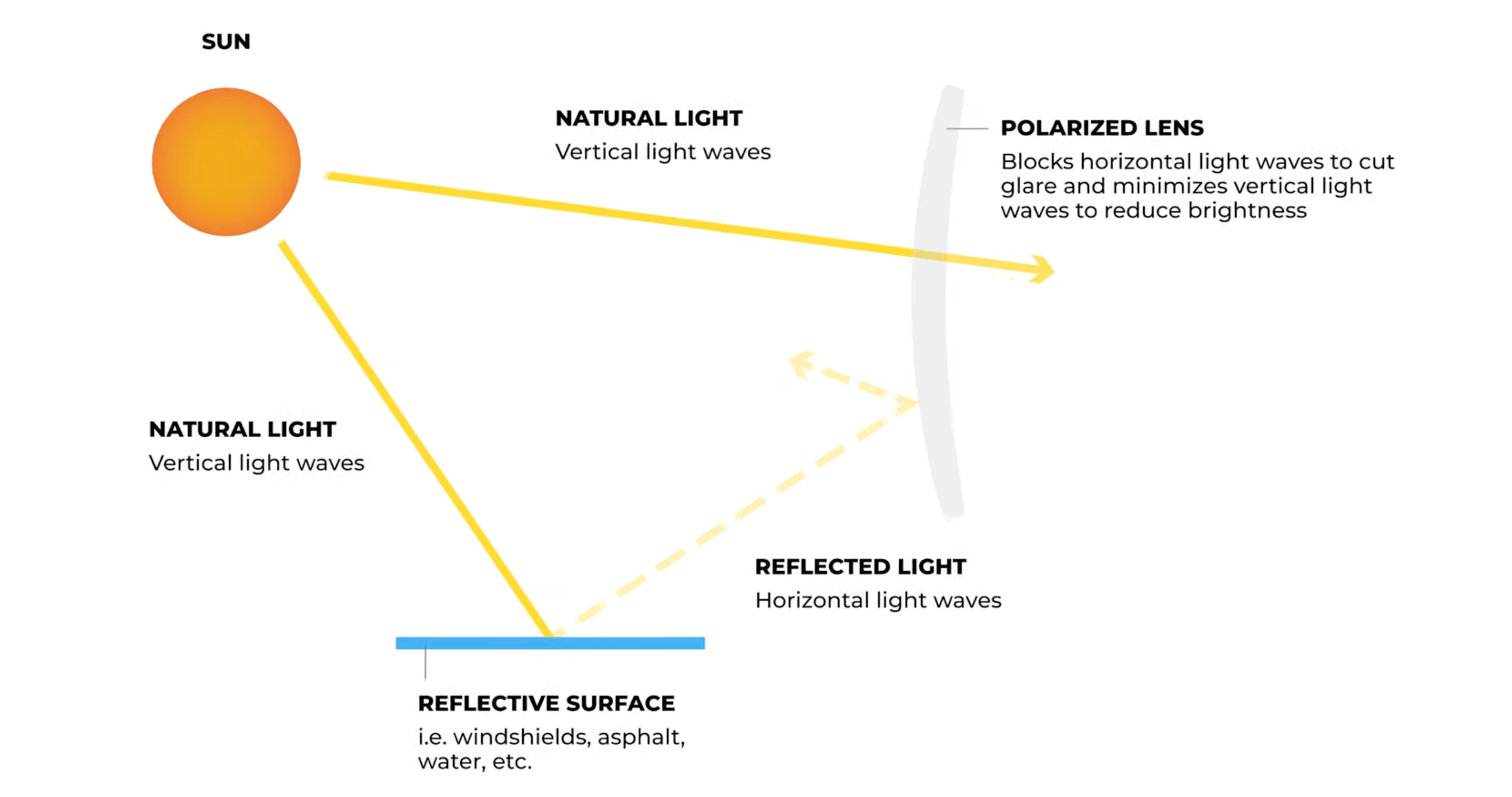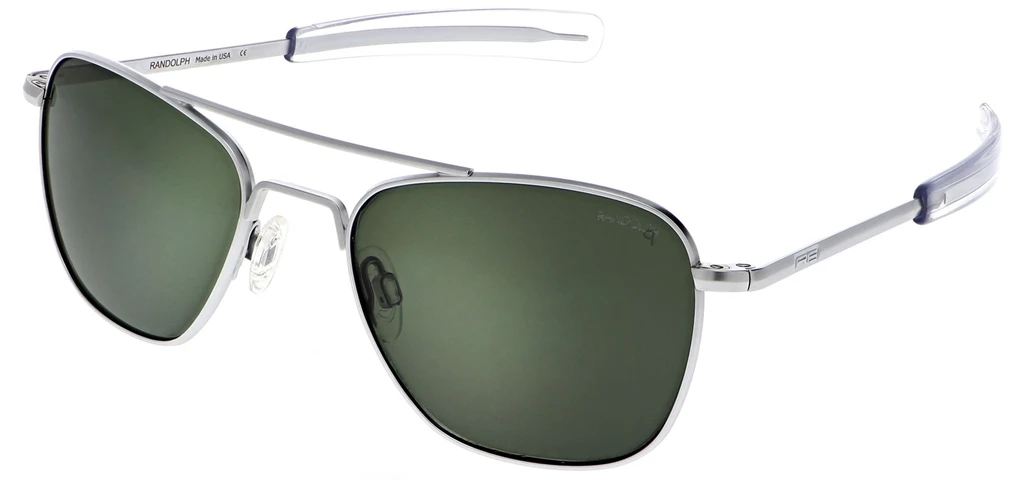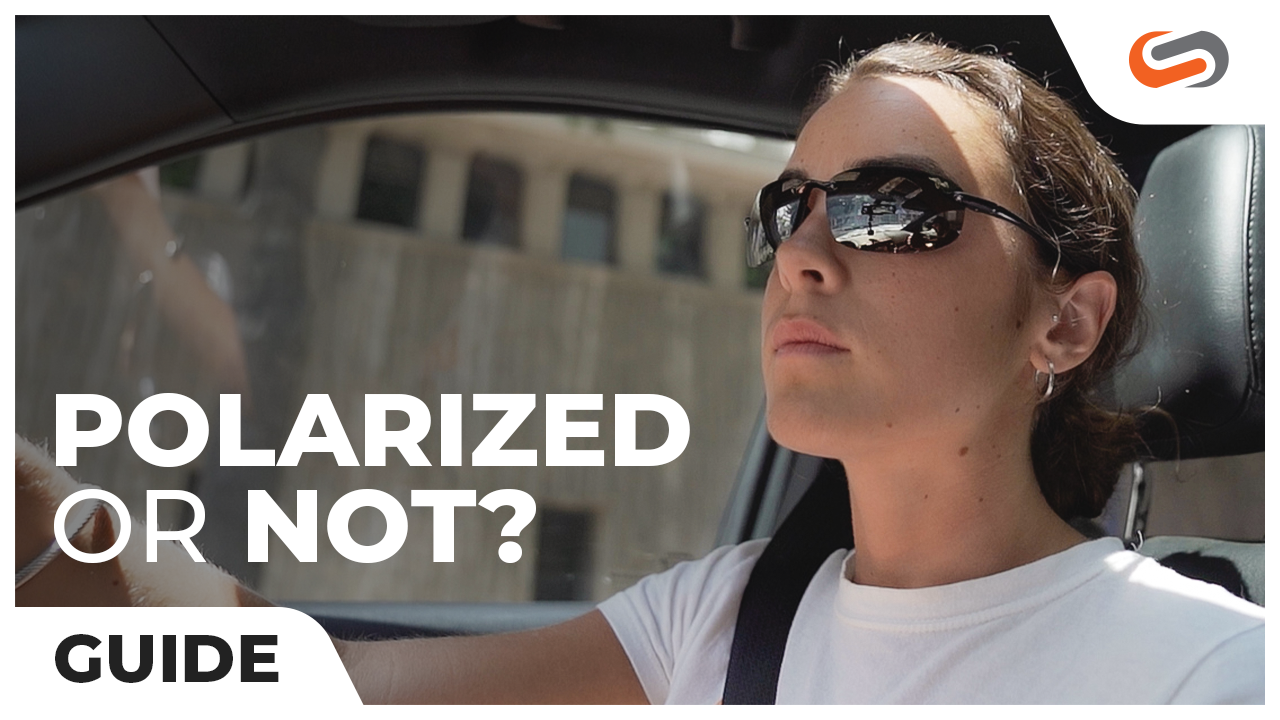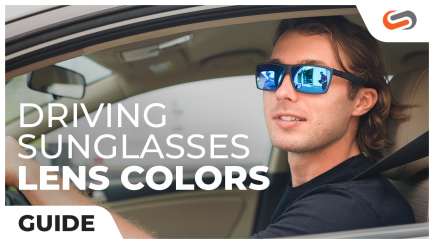You always buckle up behind the wheel, but are you giving the same consideration to your vision as you shift into drive?
When clear vision is imperative to a safe ride, give your eyes what they need to read the road free from distractions. At SportRx, we're here to help you determine the best driving sunglasses for your commute, and reveal if you should get polarized sunglasses for driving. Join us as we reveal polarized pros and cons and answer popular questions about polarized vs non-polarized sunglasses for driving!
Table of Contents
1. What Is Polarization?
2. What Are the Benefits of Polarized Sunglasses?
3. What Are the Disadvantages of Polarized Sunglasses?
4. Will Polarized Lenses Affect Digital Dashboards of Head-Up Displays?
5. Should I Get Polarized Sunglasses for Driving?
6. Prescription Polarized Sunglasses Online at SportRx
Video Review
Join Eyeglass Tyler as he tackles polarized vs non-polarized sunglasses for driving. Want to discover his thoughts at a glance? Keep on reading below for all you need to know about this popular debate.
What Is Polarization?
Before we reveal if you should get polarized sunglasses for driving, let's first review how polarized lenses work.
In general, glare is any disruption to your vision caused by excess light entering your eyes. It is created when vertical light from the sun hits a horizontal surface and is then reflected on a horizontal plane. One of the most common, and dangerous, types of glare is blinding glare.
Blinding glare is also one of the most often encountered types of glare while driving. Some common sources are other vehicles, open roads, and nature's elements like water and snow.
To combat glare, polarized lenses use a chemical treatment applied in a vertical pattern on the lens. This treatment blocks horizontal light bouncing off other surfaces, revealing greater visual clarity and reduced brightness.

How Polarized Lenses Work
Shop All Polarized Sunglasses
What Are the Benefits of Polarized Sunglasses?
Glare is one of the main sources of uncomfortable vision. It causes reduced visibility, distorted color, eye strain, and eye fatigue.
By wearing sunglasses with polarized lenses, your eyewear actively combats these symptoms to reveal greater clarity and contrast. It blocks blinding glare, relaxes eye strain, prevents eye fatigue, and creates an overall more comfortable visual experience.
Behind the wheel, polarized sunglasses also have the added bonus of creating a more focused drive since you are less likely to be distracted by light leaks or blinding glare.

Standard Lenses (left) vs Polarized Lenses (right)
What Are the Disadvantages of Polarized Sunglasses?
So far, we've sung the praises of polarized sunglasses for driving, but what about the cons? Yes, there are some.
First and foremost, polarized lenses are notorious for effecting depth perception. By removing essentially a whole plane of horizontal light, your vision can appear "flatter." While the severity of this illusion will depend on the individual, it is something to keep in mind if you are particularly sensitive to depth perception.
Another con of polarized lenses takes place in snowy condition. While polarization excels at cutting glare off snow, there is a drawback. Glare is one of the best ways to discern ice, and since polarized lenses block this glare, you will be more vulnerable to not spotting ice on the road. The takeaway note? Keep your driving conditions in mind — especially for those who live in snowy environments.
Will Polarized Lenses Affect Digital Dashboards or Head-Up Displays?
Eyeglass Tyler explains that this answer isn't as simple as it used to be.
The reason being that today, there are a plethora of different digital dashboards that are being used in modern cars. And each reacts differently through a polarized lens. Our best recommendation? Make sure the electronic dashboard or HUD of your specific vehicle isn't negatively affected by polarization.
Should I Get Polarized Sunglasses for Driving?
Now that you know the pros and cons of polarized sunglasses for driving, you should have a better idea of what is the best solution for you.
Overall, we recommend polarized sunglasses for driving. You'll experience greater visual clarity and contrast, less glare, and more relaxed vision. Your commute will also be less prone to distractions from glare off other vehicles or the road, which ultimately leads to a safer drive.
The caveat? Simply keep in mind the disadvantages we covered earlier. As long as you can get past those, you'll enjoy a more comfortable visual experience with polarized driving sunglasses.

Randolph Engineering Aviator in Matte Chrome with Glass SkyTec™ Polarized AGX Lenses
Shop Randolph Engineering Aviator
Shop All Driving Sunglasses
Prescription Polarized Sunglasses Online at SportRx
Need prescription polarized sunglasses? Done. When you shop with us, you’ll find video guides and tooltips throughout the build process as you customize the perfect pair. An answer to all your questions is at your fingertips, and if you want to chat with an expert, contact us. We’ll put you in touch with one of our friendly in-house opticians who can help you build your prescription sunglasses for driving.
Ditch risky online shopping with the See Better Guarantee. Try your prescription sunglasses for 45 days. If you’re not 100% satisfied, send them back. Get a full refund, exchange, or credit towards a better pair. And return shipping? Covered. Get the best polarized sunglasses for driving online at SportRx today!





